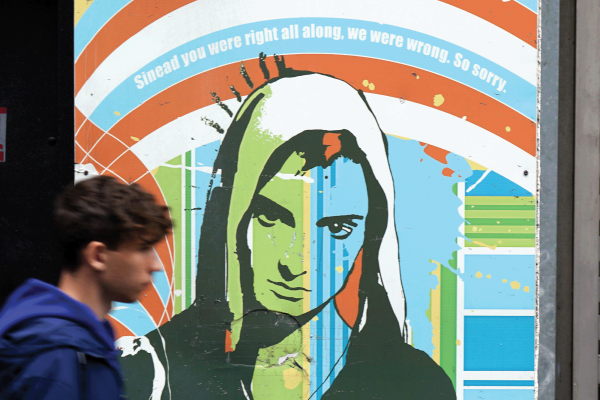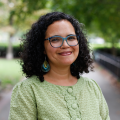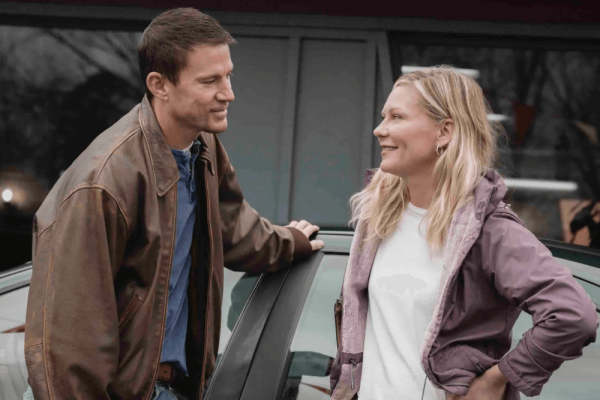AS AN INFANT, my son Malachi inserted an “el” sound into his cries. “Ah-La,” he wailed with outstretched arms. My husband Michael scooped up our boy and crooned Sinéad O’Connor’s lyrics, “All babies are born saying God’s name” (from “All Babies,” on the album Universal Mother, 1994).
As church-going Christians, we didn’t call God “Allah,” but we recognized it as the Islamic name for the Most Divine. We heard that name in our baby’s voice. But what strange lullaby was my husband singing to our child? “All babies are born out of great pain / Over and over, all born into great pain / All babies are crying / For no one remembers God’s name.”
I came of age to O’Connor’s 1990 album I Do Not Want What I Haven’t Got, belting out every word to the hit “Nothing Compares 2 U.” I stayed up late one night during 9th grade to watch O’Connor on Saturday Night Live. I was confused when she sang a cover of Bob Marley’s “War,” itself a rendition of Ethiopian Emperor Haile Selassie’s 1963 speech to the U.N., then tore up a picture of Pope John Paul II. I did not know then that she was protesting years of rampant child sexual abuse largely ignored by the church. She wanted us to listen to the cries of children.
Listening to O’Connor helped my husband break out of his white, suburban, Texas, homeschooled, evangelical upbringing to see the world through a wider spiritual lens. It made him into the man I would marry, the man who soothed our son with her lyrics. As our family grew, the fire and lament of Universal Mother helped us through grief and taught us deeper love and compassion.
In July, O’Connor (who took the name Shuhada’ Sadaqat) died at her home in London at age 56. When I heard the news, I picked a bouquet of zinnias. “Sinéad O’Connor saved our marriage,” I said as I handed the flowers to my husband. He didn’t know what I was talking about.
I reminded him of an argument in which I had expressed deep disdain toward him. My tone and words were spiteful. I was unhappy. I was mean. My husband sang to me: “I’m not no red football / To be kicked around the garden / No, no I’m a red Christmas-tree ball / And I’m fragile.” Inside my 6-foot-4, 200-pound husband was a heart that I was breaking.
I apologized. More importantly, I worked hard to find joy in my life and to change deep-set patterns of yelling and criticizing. “Red Football,” like many O’Connor songs, was a direct response to her childhood trauma. Thankfully, my husband made his point in the first few lilting lines rather than the roaring end.
O’Connor converted to Islam in 2018. For her funeral, Shaykh Dr. Umar Al-Qadri said, “Sinéad’s voice carried with it an undertone of hope, of finding one’s way home.” As I relisten to O’Connor’s music, especially on Universal Mother, I hear a prophet crying out for us to hear God’s voice in the children among us and the children within.
She urged listeners to be gentler people. “All Babies” ends with a refrain, “There’s only love / There’s only love in this world.” Sinéad helped me find peace and healing. I hope only that she has found mercy, compassion, and full healing for herself.

Got something to say about what you're reading? We value your feedback!







